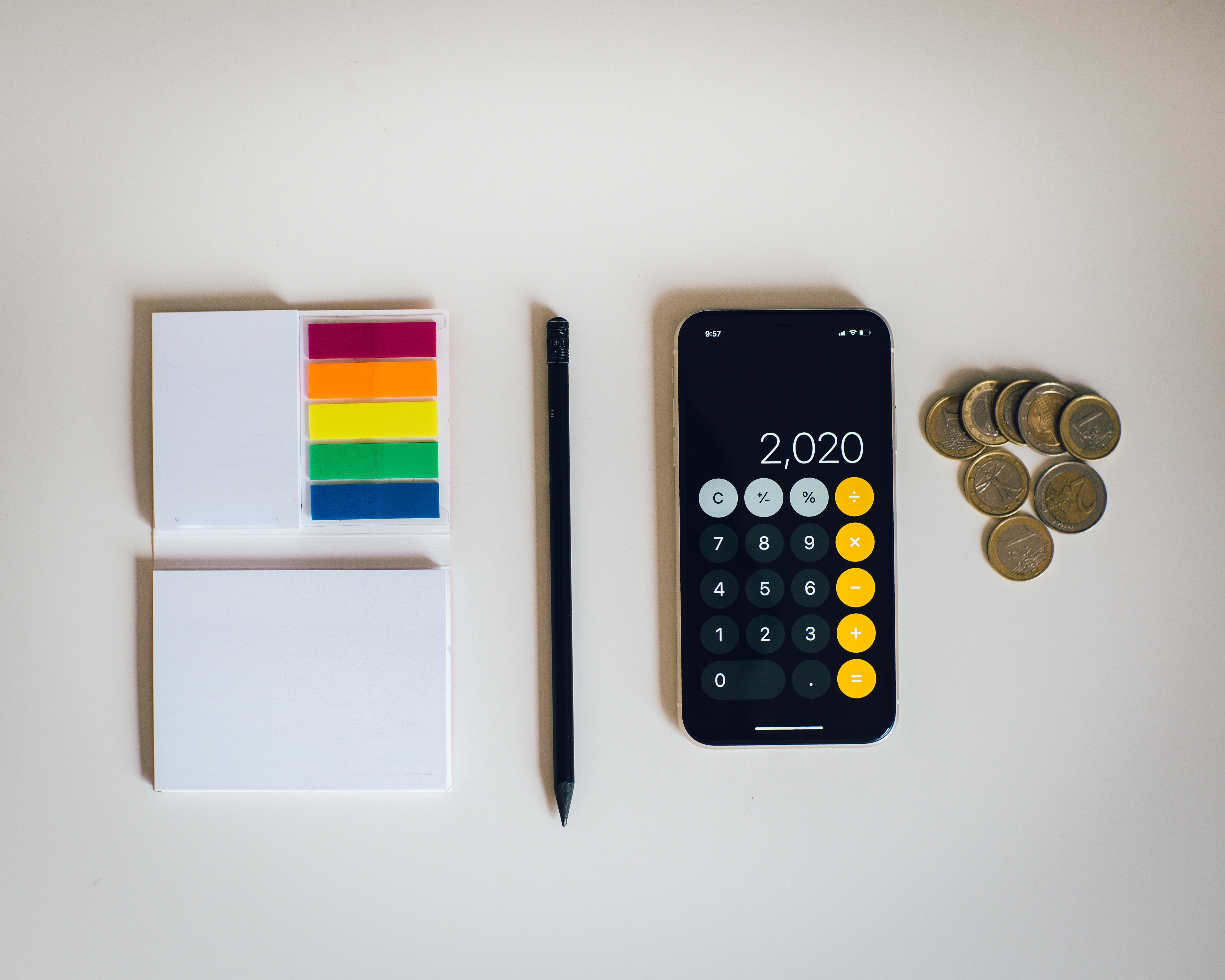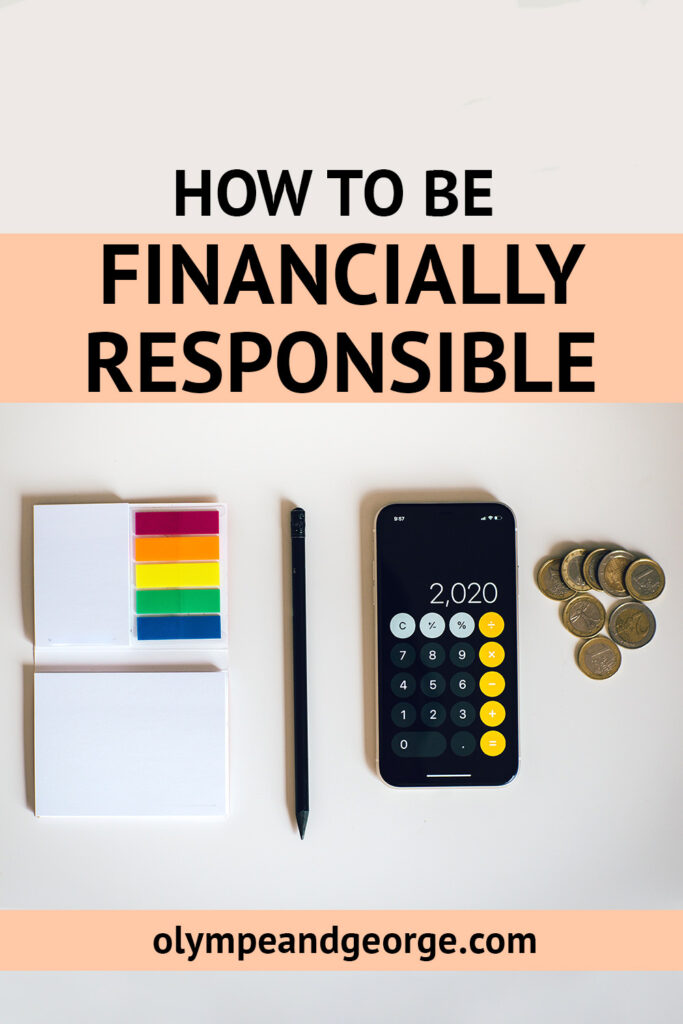Being financially responsible is hard at the beginning of your journey. It might be your first year of college or when you get your first job.
We all want to make smart choices or avoid mistakes that will drag us along for years. And we want to make sure we have enough money at the end of the month to meet our needs.
Here are a few steps to start your financial journey on the right foot or give your bank account a refresher.

1. Have a good look at your existing finances
You cannot make a plan if you don’t know where you stand. You have to know where your money is going in order to tailor a proper strategy that’ll take you where you want to be.
We all heard to stop buying lattes before. But what good can that do if you’re someone who only goes out for coffee once a month. You end up cutting that expense and wonder how your finances can look the same.
No one has identical spending habits, and we sometimes don’t even realise what ours are.
There are two ways to check your expenses.
You can either start with a retrospective look of the past few months. This method gives you a realistic idea of where your money was going when you weren’t paying attention. However, in my opinion, it can feel a bit overwhelming and tedious to go through past buys and bills.
Alternatively, you can start registering your expenses from now on for a month or however long you need to. The downside is that it can be biased with you already trying to cut down and not give you a full picture of your spending habits, and it takes longer to assess. But I feel like it is easier to take it day by day.
Once you know where your money is going it’s time for step 2.
2. Set Goals: make a budget
This blog post isn’t made to be fun or to give you a quick fix. Being financially responsible takes time and some effort.
You don’t have to create a stellar excel spreadsheet unless that’s your thing.
All you need are two columns, one with your income and the other one with your expenses.
Now is the time to decide on your spending and saving goals whilst keeping it realistic.
To create your budget you can go in one of two ways.
You can start by “paying yourself first” AKA setting a saving goal first and working your way from there.
So for example, you are getting paid $1500 a month, you want to save $500 each month, so then you can build your expenses budget up to $1000.
The other way is to lay down on paper all your current expenses and see where that leaves you in terms of savings. If you’re happy with the numbers then you make it a rule to not overspend. If you feel like that’s not where you want to be, then you have to go through your spendings and cut down on some.
The most important thing is to keep it realistic to not get disheartened if you can’t save $1000 every month. Start small and build your way up.
3. Be smart about your expenses
Just like a business, you have two types of expenses: fixed and floating.
Your fixed charges are the recurring ones such as your rent or mortgage, your phone and internet bills, your bank fees, and any subscriptions you may have. Electricity or gas bills may be in there if it’s a fixed plan.
Your floating charges are the ones that differ from month to month. It might include your electricity bill if it’s not a fixed plan, your groceries, anytime you go to the restaurants or you buy something.
To make your budget work, you have to be smart with both your fixed and floating expenses.
Rent is usually the biggest expense and therefore should be addressed first in my opinion. We all want to live in a lavish apartment in the city centre. However, that might not always be available to us.
A rule of thumb is usually to stick to a third of your salary to allocate to your rent. It’s not always possible if you live somewhere ridiculously expensive, I’ve been there. But you should be willing to make sacrifices on location, having roommates or not, the size, any outdoor spaces, etc.
If living in a great place is a priority for you, then by all means spend more, but do it knowing that it means sacrificing something else in return. It’s all a matter of priorities and choosing what matters most to you. Rent can add up hence why I tend to be a bit stingy about it so that I can find freedom for other expenses.
Groceries also add up quickly. My fundamental tips are to have a shopping list that loosely matches a simple meal plan and sticking to your list to not go overboard.
Another advice is to buy everything off-brand. Instead of looking at fancy marketing manoeuvres, inspect ingredients. Each saving can feel small and insignificant but when you do it on 30, or 50, or 100 products every month, it amounts to a lot.
4. Enjoy life and be financially responsible
It’s all about balance. You should set your priorities straight and decide what’s most important to you at this given time as well as the kind of lifestyle you want to live.
Being financially responsible is about creating the life you want to have without paying your bank some extra fees in the process.
I might prioritise creating an emergency fund first for rainy days if you can. But none of it should prevent you from having fun.
You might have to be more creative on how to have fun when money is tight. However, it’s always possible.
An example is to have a picnic or invite friends over instead of going to a restaurant. Everyone brings something to share and you usually end up making more memories because it feels more special than going to yet another restaurant.
As much as you try to save money, some things will never be free. Nevertheless, you shouldn’t feel ashamed for spending money or investing in specific items if it’s worth it to you.
Don’t make rash decisions and don’t live by someone else’s book.
It’s as cheesy as it can get but you truly only live once, so make sure you live the life you want.
No one starts with the same cards in hand, make the most about what you have. Strategise where you can and ask yourself the right questions to be financially responsible.
Check out my article about saving money and the planet at the time.


